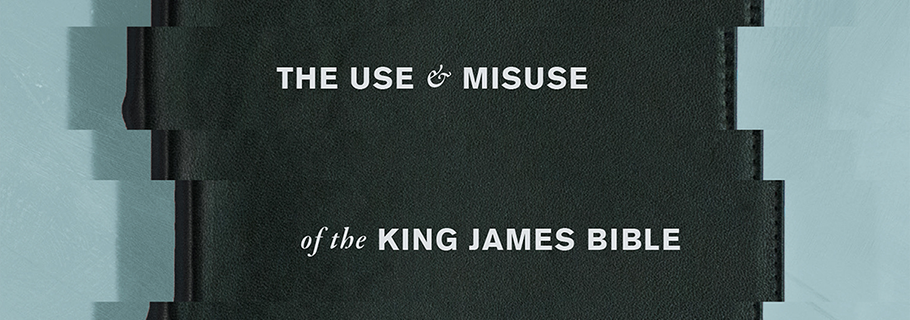It’s indisputable: No book has had a greater impact on the hearts of individuals and the course of humanity than the Bible. For much of the history of the English-speaking world, the King James Version has been the Bible. Even today, more than 400 years after its initiable publication, it continues to record a stunning percentage of Bible sales. As time continues to pass and its language continues to age, many have wondered: What do we do with the KJV? Some are convinced we should put it out to pasture as a relic of the past. Others are convinced we should maintain it as our Bible of choice.
Mark Ward advocates something between these two extremes, and does so in an excellent new book titled Authorized: The Use and Misuse of the King James Bible. He insists this book is not for pastors or scholars but “for the regular, English-speaking, Bible-reading public. It contains no Greek or Hebrew words. It focuses entirely on English. This beyond-influential translation, this ‘Authorized Version,’ has been and is both used and misused. We need to discover its proper place. So what do we do with the KJV? Teach people to read it? Revise it? Chuck it? No, no, and no.”
Ward begins with an excellent overview of what we stand to lose as the church stops using the KJV. We lose some of the intergenerational ties that bind us together; the kind of Scripture-memory by osmosis that happens when everyone quotes a common translation; a cultural touchstone that provides a source of common phrases and a form of distinctly religious communication; some of the implicit trust Christians have in the Bible as they now choose between a hundred competing translations; and even some of the implicit trust non-Christians have in the Bible. There is a cost to abandoning the KJV. But does this mean we ought to hold on to it?
No, but it does mean we need to think very carefully and proceed very cautiously. And that is exactly the approach Ward models in this book. His concerns are best seen in two consequences of the changing nature of language: Dead words and what he refers to as “false friends.” Dead words are self-explanatory: Over time words inevitably false out of use and this is exactly the case with the KJV. “Trow,” “bruit,” “collop,” and “emerod” are all words that appear in the KJV but have fallen completely out of popular use. This presents an undeniable barrier to understanding. Not only that, but few dictionaries even list these words any more, presenting a still-greater barrier.
Modern readers quite literally can’t—not merely don’t—know what they’re missing when they read the KJV.
The more significant concern is false friends, words that remain in use but with a different meaning that modern readers are unlikely to recognize. There is a lengthy list of such words and they appear even in key passages. “Modern readers quite literally can’t—not merely don’t—know what they’re missing when they read the KJV. You can teach people to look up unfamiliar words, but the issue here is not words you don’t know; it’s words (and phrases and syntax and punctuation) you don’t know you don’t know—features of English that have changed in subtle ways rather than dropping completely out of the language.
After evaluating (and discarding) common claims that the KJV presents a more appropriate reading level than modern translations, Ward discusses the value of a vernacular (common translation) and gets to the big question: Which Bible translation is best? Well, it turns out that’s the wrong question and, in fact, the source of many of our issues. The tribalism that keeps us fixed on one translation over all others is unhealthy. “All Bible-loving-and-reading Christians need to learn to see the value in all good Bible translations.” If we get rid of the “best” mentality we can enjoy each of the good translations according to what makes them particularly useful.
Authorized is a little book that packs a punch. It deals with a common issue in a helpful, humorous, and respectful way. It is worthy of any Christian’s time.










